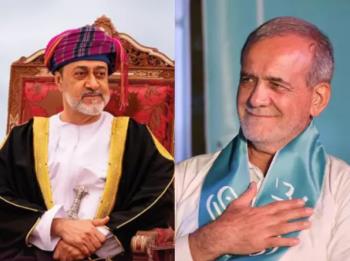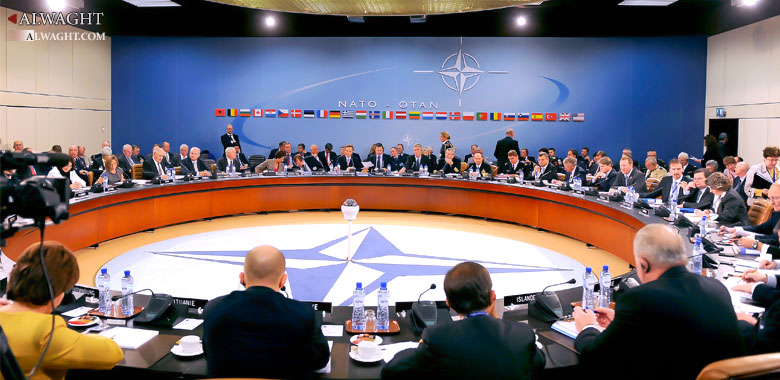Alwaght- During the past two days, the Norwegian capital Brussels has hosted a meeting for the defense ministers of the NATO member states. The meeting was also attended by some of defense ministers of the countries taking part in the Saudi-led military coalition announced recently by the Saudi King Salman. The meeting has discussed an array of issues including the tense situation between Russia and NATO, as well as the European countries’ concerns originating from the growing refugees crisis. Also, the military bases of the coalition located in East Asian and the way to strengthen them have been brought under focus. Furthermore, the ISIS terror group’s case and the course of the developments on the ground in Syria after the Russian anti-terror campaign have occupied a significant part of the summit. The NATO members also discussed an offer made by the Saudi King Salam about his forces’ readiness to take part in a ground offensive inside the Syrian territories as part of the US-led military coalition. The consequences of the Western-fueled crisis in Syria, which have begun to affect some of the European countries on the one hand and the Western repeated failures to make any gains on the ground due to the regional people’s resistance and their allies’ backing on the other hand, have pushed the NATO members to gather in Brussels to see about new mechanisms to fuel the tensions and conflicts and keep them in place in West Asia region.
Fueling the fire and encouraging the split choice
The West in its interventions in the region essentially focuses on spurring the disputes between the regional sides to pave the way for partition process which, in turn, would create other conflicts. To this end, the West has established the devastating terrorism ideology. Over four years have gone by since the conflicts started in Syria. The people in the region have resisted and guarded against the Western project and repelled it while being backed by the allies including Russia which has launched its anti-ISIS air campaign in Syria in September. Also, recently the Syrian people have made successes in northern areas of the country, especially their recapture of Nubul and al-Zahra towns which have been under ISIS' siege. Foiling the Western plans in the region generally and Syria specifically, the fresh gains have sent the NATO concerned, forcing the military alliance to hold its meeting.
Mohammed bin Salman, the Saudi defense minister, also took part in the NATO meeting to suggest Saudi Arabia's plan to deploy ground forces to Syria. The man himself, as the world has seen, during over past ten months, and specifically recently, has committed the most atrocious crimes against the Yemeni people and army. Therefore, it is obviously a bluff and deception that Saudi ground forces would be sent to Syria for battling against the terrorist groups.
Among the plans also on the agenda of the NATO meeting was training and preparing what the West calls the local fractions to confront ISIS terror group. This choice realizes the Western project to support parties with suspicious backup sources, mostly far from the Syrian government's dominance. This planning is coming as part of a Western colonial scenario which aims at forming several armed groups fighting each other in a bid to implement the partitioning plan. Furthermore, the colonial West is proposing to support the region's armies, though it is apparently not corresponding the sizable challenges the region is dealing with. The aim of the proposal is seen to be holding back the regional states from referring to such rival countries as Russia for arms purchases in order to keep the region's armed forces under the control of the West, and clearly the US.
Facing the consequences of the backfiring plots
One of the repercussions of the Western-triggered Syrian conflict is the crisis of refugees. A large number of the displaced people have managed to pass to southern and western Europe. Also, almost two million refugees are now camped in the Turkish territories close to Greek territories which stand as a gate to the other European countries, an issue seen by Europe as posing a threat to it due to the economic burdens the crisis imposes on the EU. It is also afraid that some suspicious people could mix into the refugees to enter Europe. Discussing the issue is crucial to the NATO because the issue itself is crucial for some of the European countries, especially Germany, France and Turkey. Additionally, the meeting examined a German-Turkish initiative for dealing with the refugees. Turkey is set to receive European financial aid in exchange for receiving more refugees on its soil.
The recent Russian moves in the Syrian territories and Moscow's possible cooperation with Iraq to fight the armed groups backed by the colonial West are the other matters making the Western countries, especially the Europeans which are considered to be bordering the West Asian region, worried. The point of the discussion revolves around finding ways to limit the crisis impacts to the targeted areas without paying any prices.
NATO's members divided, Russian case on the table
The NATO members are divided over a series of cases and the ways to deal with them. In addition to West Asia region, there was a discussion of African issues, especially the Libyan conflict and the air and ground interventions which are set to begin soon. Also, there is another difference as some of the members remain undecided on raising the war budgets in Europe, though it appears that the case was agreed upon. Thereby, the upcoming days would see establishment of more command posts and arms deployment on the European territories, as the US would be allowed to station larger number of forces on the European soils, possibly the number would reach 5,000 troops.
But it is unlikely that NATO members would approve a process in the near future to hold official talks with Moscow to help improve relations and find ways and draw road maps to deal with all the unsettled cases, including the Syrian crisis. This is an evidence that the Western side has experienced a decline in the position towards Russia caused by Moscow's recent moves in Syria on the one hand and in Ukraine on the other hand.



























